Y filltir sgwâr/The square mile: Capel Newydd
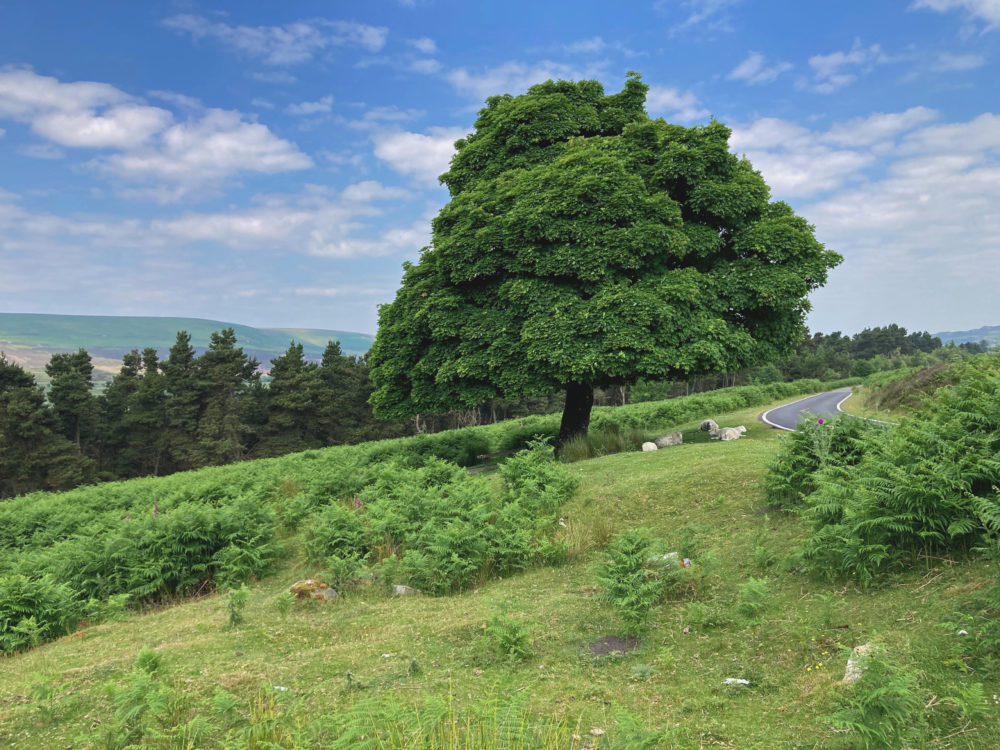
In a year long series Tom Maloney, from Abersychan, shows how you can love a place so well it becomes a part of you.
Walking is most definitely one of the finest pleasures of life in my mind. When you are walking there is time to stop and take things in, there is time to reflect and there is time to feel the spirit of a place.
Some places have an immediate sense of tranquillity and wellbeing about their environment. There is a sense of spirituality in the grass, the stones, the bracken and the trees that you feel has been there long before your own footsteps.
Unsurprisingly perhaps, Capel Newydd, which lies on the hillside above Cwmafon, some way along the Llanover Road from Blaenafon is one of those places.
Demolished
Translated from the Welsh into English the name means ‘New Chapel’ and it is one of the oldest places in the locality, though the church itself has been demolished for some time.
It is a place that I will often while away a little time when en route from Blaenafon to Abersychan, but in honesty there is so much in this vicinity to engage the mind just exploring the many paths that are to be found nearby.
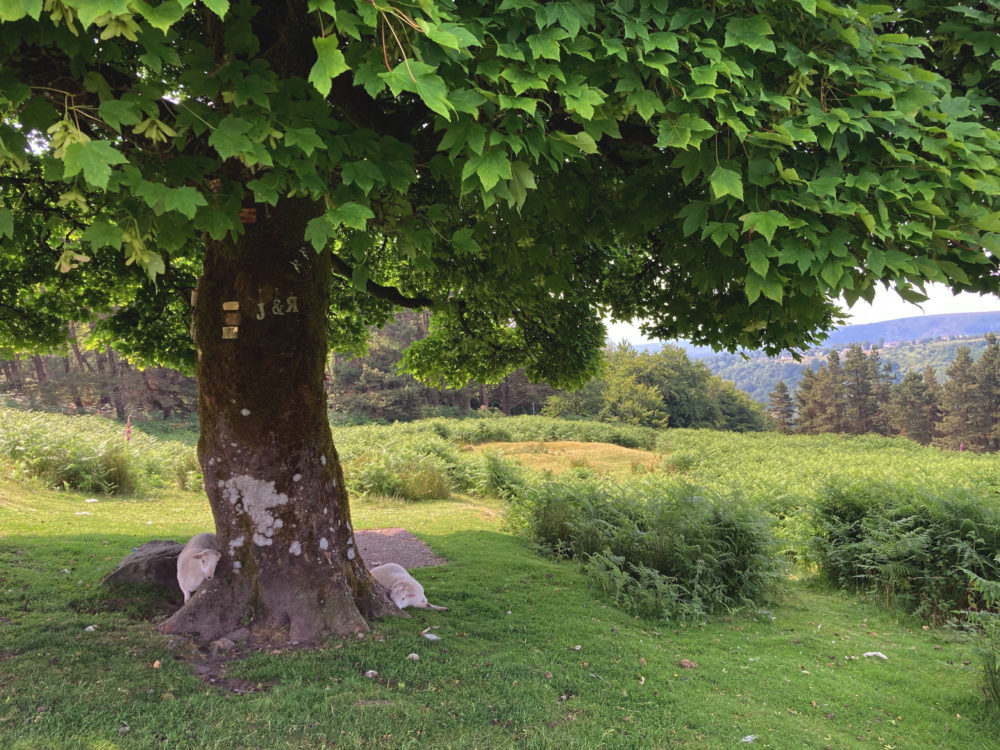
It would seem to be a firm favourite with the local sheep as well, as you can very often see lambs and their mothers at rest beneath the spreading bows of a stately Sycamore tree that signposts this picturesque location over some distance.
Laden with emerald green leaves it provides welcome shade in the heat. The sheep look so comfortable lying at rest and the grass is perfectly placed for a convenient snack as well. Sometimes the sturdy tree trunk also makes a very good scratching post as well!
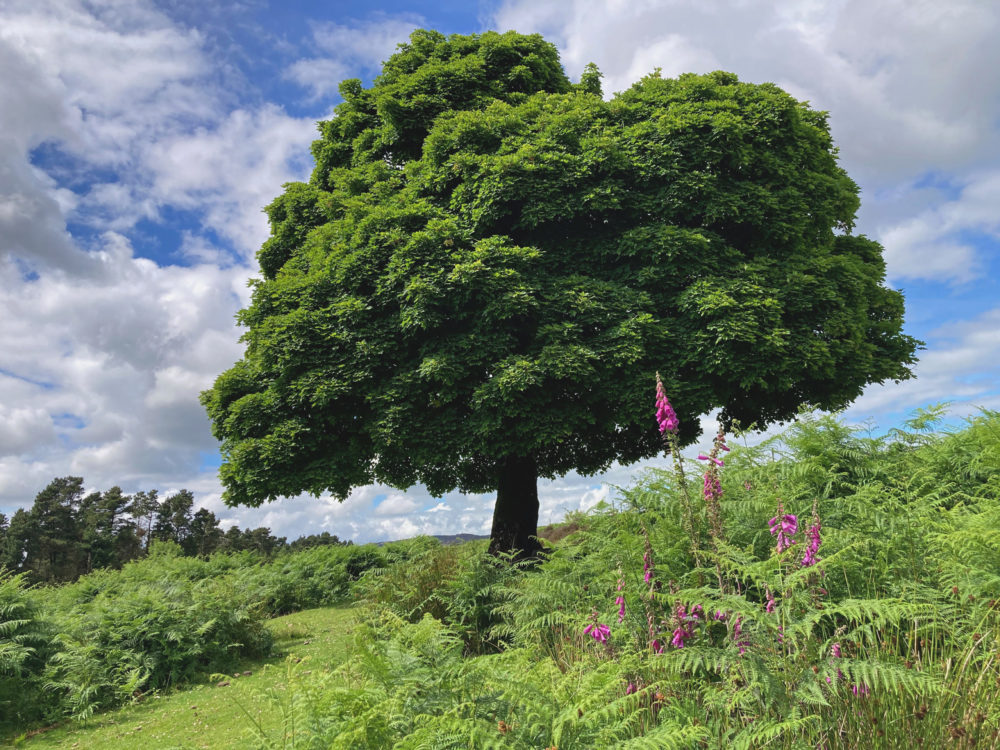
Just how old this beautiful, ancient sycamore is it is difficult to know, but with its distinctive profile it is an iconic features of the landscape.
And … what a contrasting landscape this is!
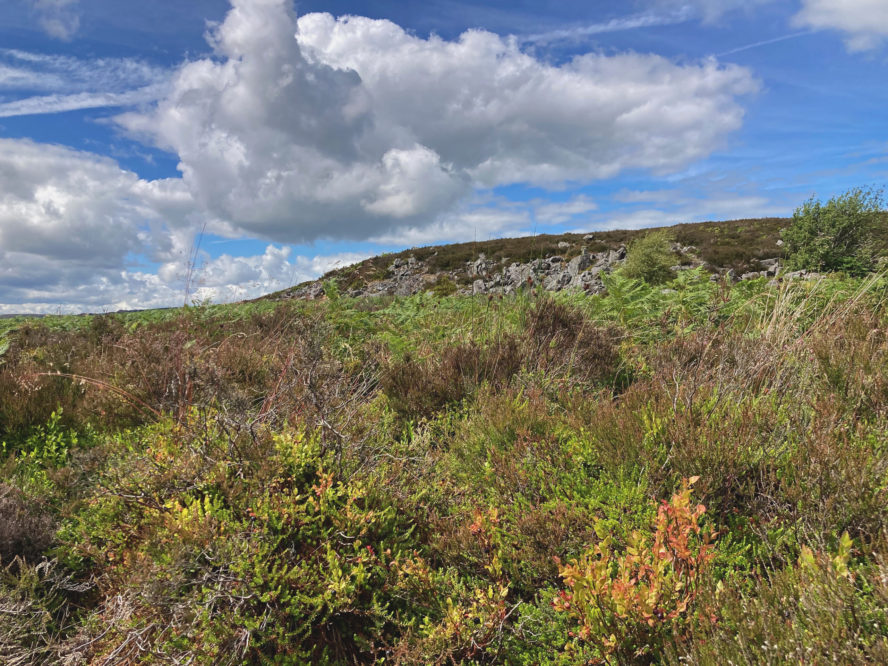
Only a short step away, perhaps no more than two hundred yards continuing along paths lined with spreading ferns, you will find yourself in open countryside where the textures of rocky outcrops fuse harmoniously with the rustic red and mustard yellow leaves of low growing wimberry bushes.
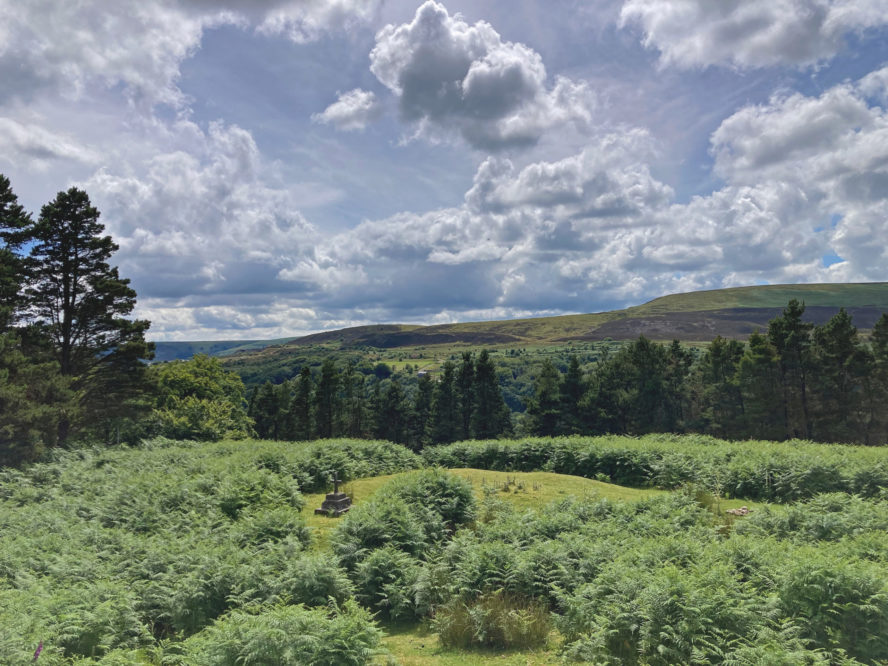
Stone cross
No standing walls remain to see where this little church once stood, but with a keen eye a grassy mound bearing a small stone cross reveals its location.
Even though the cross is elevated on its own tiered alter, it may be obscured by the bracken, which is quite tall just now … but it is there.
Coflein, the online catalogue of archaeology, buildings, industrial and maritime heritage in Wales places its origins in the Medieval Period.
To my untrained eye it would seem that the grassy mound maybe hiding some of the secrets of the past.
Beneath its grass, cut short by the grazing sheep, the original foundations and perhaps a little more besides may still be present.
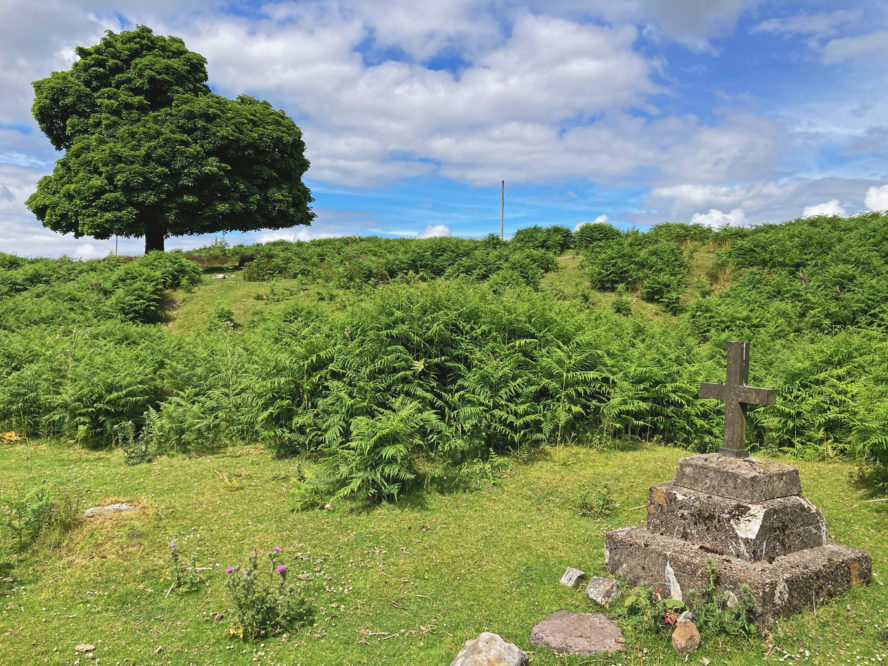
A well researched article by Dr Nathan Matthews for the Blaenavon Civic Society makes fascinating and enjoyable reading and allows you to imagine how the church may once have looked.
‘Described in archaeological journal of 1873 as ‘low’ and ‘mean-looking’, Capel Newydd was rectangular in shape and measured some 32 feet by 16 feet, with a small porch on the entrance measuring 10 feet by 8 feet, and a small bell tower. Inside the chapel was a fireplace to keep the small congregation warm during the winter months.’
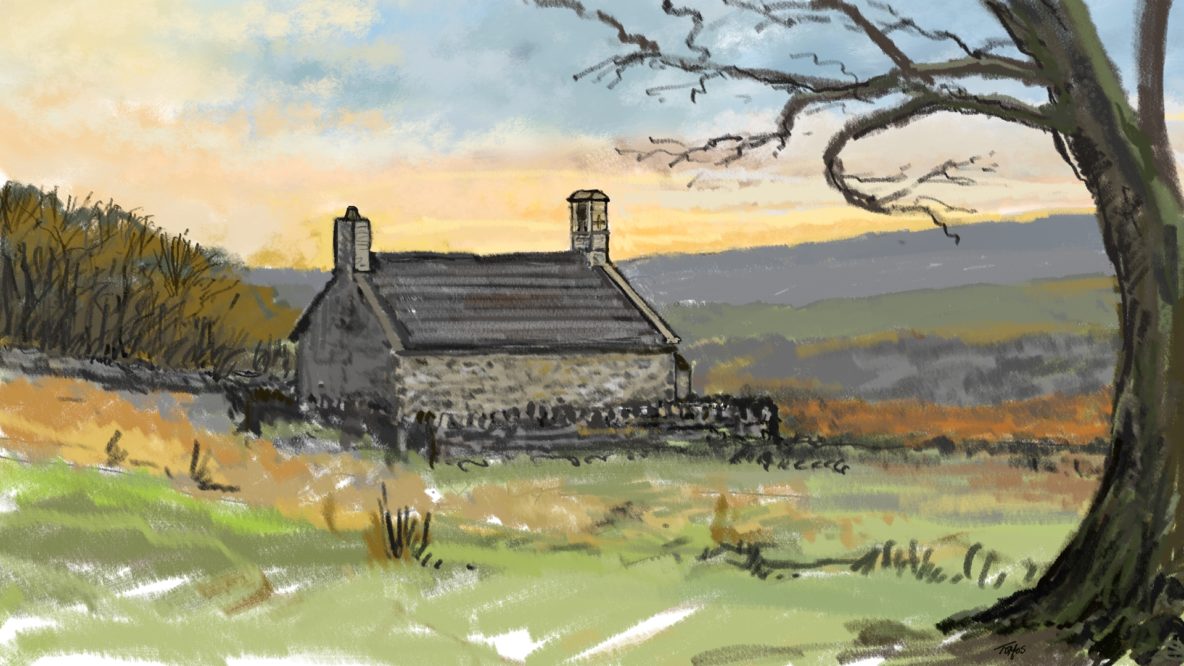
The article also also sheds light on its last days …
‘Capel Newydd gradually fell into ruin and was ultimately demolished in 1893 when some of its stones and artefacts were used in the building of St. Paul’s Church at Coed Cae.’
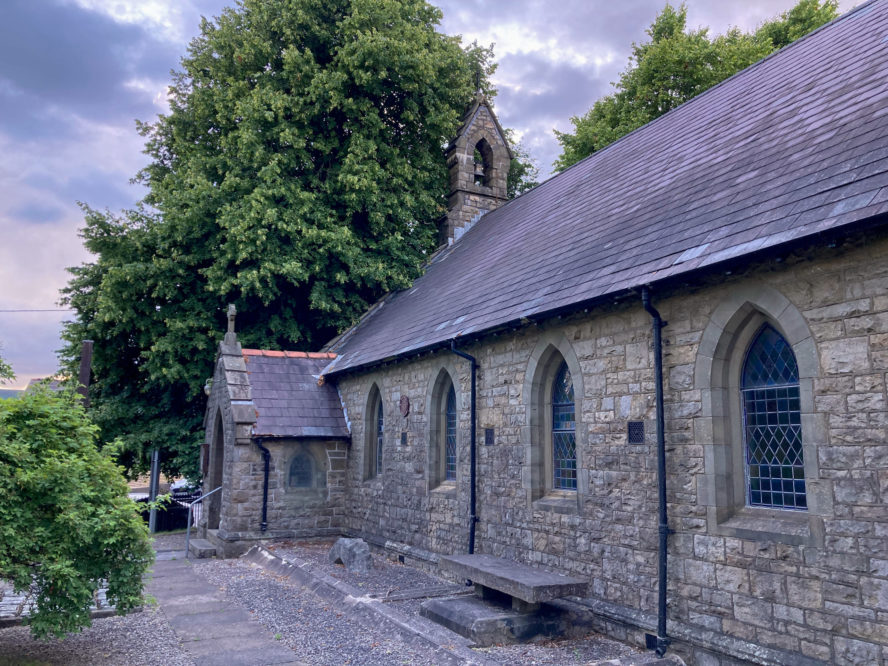
One evening this week I stopped to take a closer look at St. Paul’s Church on Llanover Road, Blaenafon.
On the wall facing the road there is a lovely purple Blaenafon Heritage Site plaque bearing the following inscription.
ST PAULS
CHURCH
BUILT IN THE 1890s
WITH STONE TAKEN FROM
CAPEL NEWYDD. IT ALSO
CONTAINS A STONE
ALTAR FROM THAT
CHAPEL
It was a beautiful evening, with a sky of summer blue hues and amongst the stone artefacts displayed below the stained glass windows I could see the capping stone for the small bell tower of Capel Newydd.
I looked upwards at the little bell tower of St. Paul’s and wondered if the bell too was from the old chapel.
I often hear the bell ringing out whenever I take a Sunday morning walk along the old railway line. Next time I hear its steady call I will think about the continuing story of the people of the valley.
Support our Nation today
For the price of a cup of coffee a month you can help us create an independent, not-for-profit, national news service for the people of Wales, by the people of Wales.







Ethyrgl gwych fel arfer
Diolch yn fawr iawn am yr ateb caredig iawn. Mae Capel Newydd yn lle hyfryd.